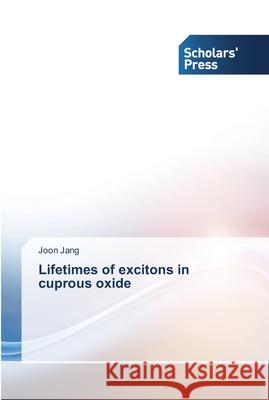Lifetimes of excitons in cuprous oxide » książka
Lifetimes of excitons in cuprous oxide
ISBN-13: 9783639519723 / Angielski / Miękka / 2013 / 168 str.
Cuprous oxide has been widely recognized as a possible host material for an excitonic condensation owing to its favorable band structures. However, the difficulty in reaching the condensed state lies in a strong two-body process at high densities. This work is an experimental and theoretical study of excitonic lifetimes due to various relaxation processes. A generalized exciton/acoustic-phonon interaction is classified in order to explain 1) thermalization (scalar field scattering), 2) ortho-para down-conversion (axial vector field scattering), and 3) singlet-doublet interconversion (off-diagonal tensor field scattering) under external stress. A density-dependent exciton recombination process is carefully investigated in terms of 1) mutual spin-flip scattering, 2) excitonic Auger recombination, and 3) exciton-exciton capture to form an optically inactive biexciton. A theoretical modeling of the exciton kinetics is proposed to explain experimental observations and possibilities of Bose-Einstein condensation of excitonic matter in this unique semiconductor.











